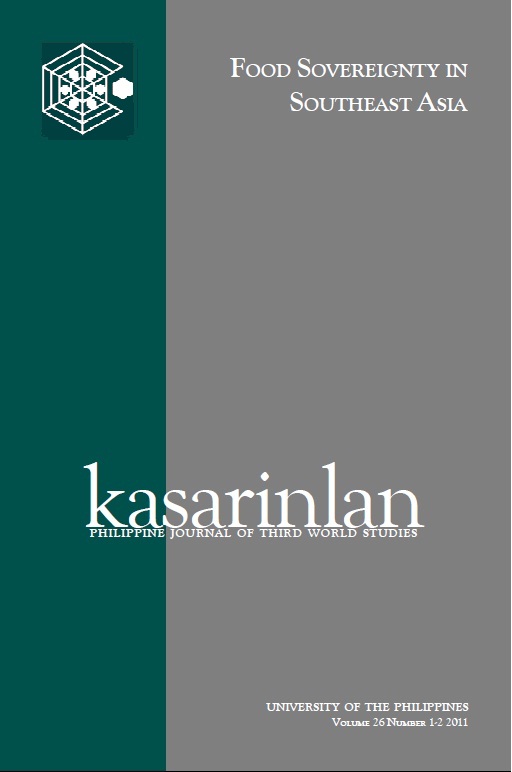Introducing the “Human” into Philippine Security Discourses: Convergence or Dialogue?
Abstract
This paper reviews the history of the introduction of the concept of human security into security discourses in the Philippines. Gasper’s (2005, 2010) understanding of the concept as a “boundary object” and its roles inside and between discourses, are especially considered for the study. We start by briefly describing the way the concept emerged in the international community and how it was received in Southeast Asia, pointing out the weak connection between the external and the domestic development of the concept. The predominant association of security with armed conflict in the Philippines offered a more likely niche for actors’ engagement in the security discourse. Based on their differing general visions of the armed conflict and its resolution, at least three distinct discourses of security are identified: the peace movement, the national security framework, and the anti-terrorism legislation. The entry points for human security rhetoric are described for each discourse, and related developments are presented. Finally, we describe the boundaries between the intellectual communities represented by the three discourses, as well as how human security is—or could be—helping to mediate between those boundaries. We favor a framework in terms of dialogue rather than convergence, given the magnitude of the challenges implied. The article offers a guide for newcomers to the debate, contributing to fill the gap in the literature on domestic analysis about the concept’s operationalization.
How to Cite
GÓMEZ S., Oscar A..
Introducing the “Human” into Philippine Security Discourses: Convergence or Dialogue?.
Kasarinlan: Philippine Journal of Third World Studies, [S.l.], v. 26, n. 1-2, p. 153-182, dec. 2012.
ISSN 2012-080X.
Available at: <https://journals.upd.edu.ph/index.php/kasarinlan/article/view/3494>. Date accessed: 21 sep. 2025.
Section
Articles
Keywords
human security; peace movement; terrorism; human development; boundary object; Philippines
By submitting a manuscript, the authors agree that the exclusive rights to reproduce and distribute the article have been given to the Third World Studies Center.



